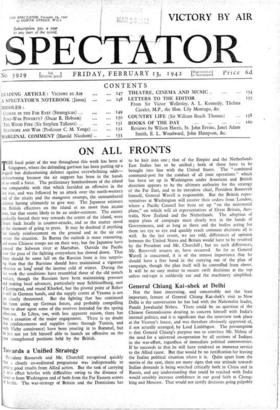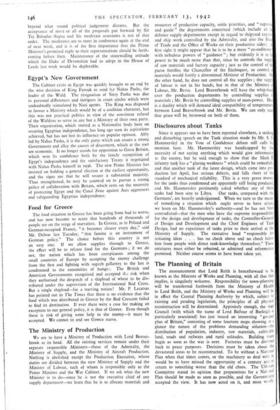General Chiang Kai-shek at Delhi
Not the least interesting, and conceivably not the least important, feature of General Chiang Kai-shek's visit to New Delhi is the conversation he has had with the Nationalist leader, Pandit Jawaharlal Nehru. There could be no question of the Chinese Generalissimo desiring to concern himself with India's internal politics, and it is significant that the interview took place at the Viceroy's house, and was therefore obviously approved of, if not actually arranged, by Lord Linlithgow. The presumption is that General Chiang's purpose was to convince Mr. Nehru of the need for a universal co-operation by all sections of Indians in the war-effort, regardless of immediate political controversies. If he succeeds in that he will have rendered an immense service to the Allied cause. But that would be no justification for leaving the Indian political situation where it is. Quite apart from the merits of the case, there are many signs that our attitude towards Indian demands is being watched critically both in China and in Russia, and any understanding that could be reached with India would sensibly increase confidence in our good faith at Chung- king and Moscow. That would not justify decisions going palpably beyond what sound political judgement dictates. But the acceptance of most or all of the proposals put forward by Sir Tej Bahadur -Sapru and his moderate associates is not of that order. The moderates are to meet in conference again at the end of next week, and it is of the first importance that the Prime Minister's promised reply to their representations should be forth- coming before then. Maintenance of the stonewalling attitude which the Duke of Devonshire had to adopt in the House of Lords last week would be deplorable.



























